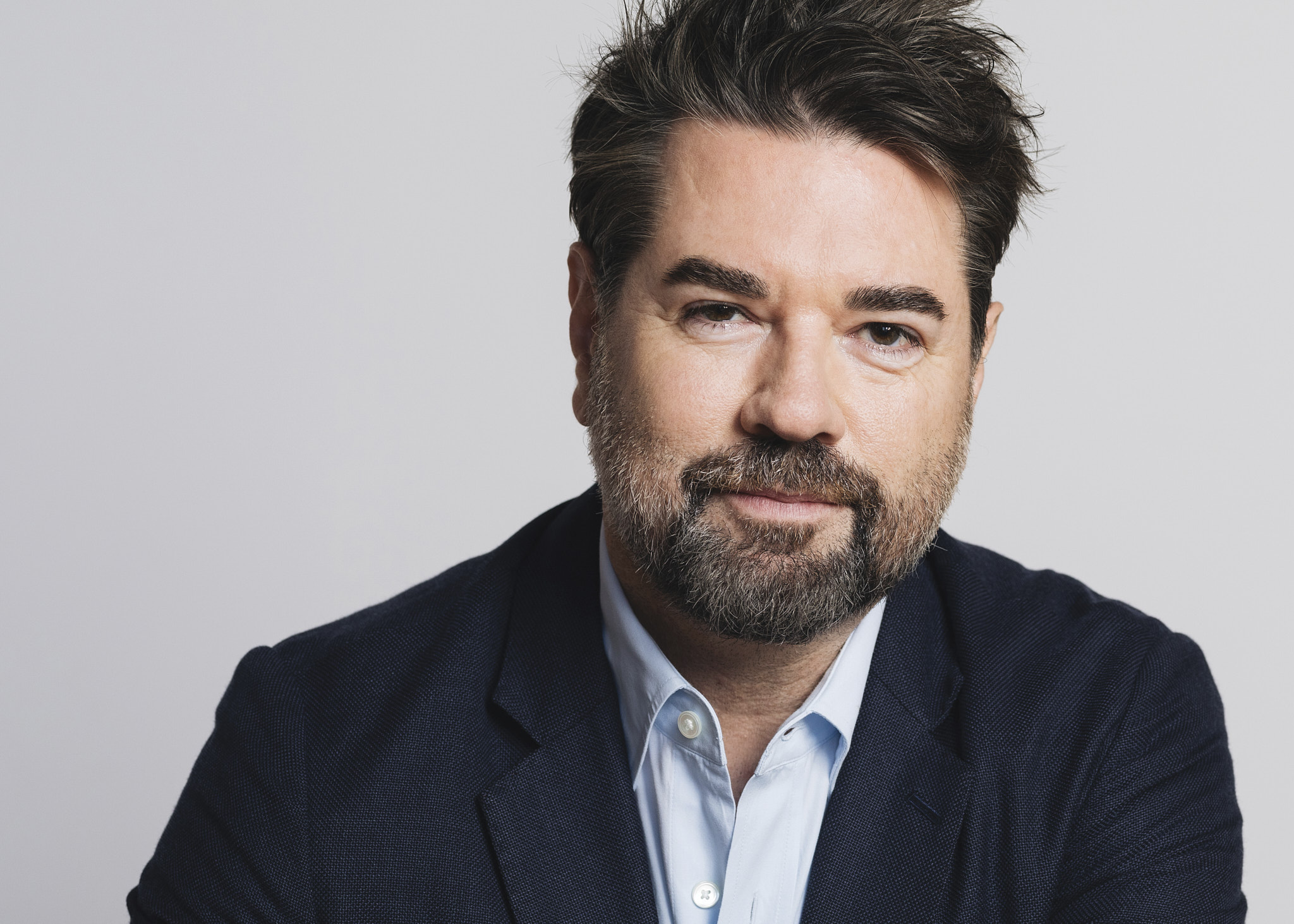Good Reads Q&A: An Oral History of This Beloved TV Show Is Also a Cultural History of the Pandemic

As the television editor at the New York Times, Jeremy Egner, BA ’99, can do some of his best reporting at home on his sofa. But when Apple TV+’s Ted Lasso premiered in the heart of the COVID-19 pandemic, as much of the world was also confined to their couches, he didn’t know what to make of it at first. The television series had an unusual origin story: Jason Sudeikis and Brendan Hunt created the character of Lasso years prior to advertise NBC Sports’ Premier League coverage.
The story of the show’s cultural impact is the material of Egner’s first book. He spoke with the Alcalde to discuss Believe: The Untold Story Behind Ted Lasso, the Show That Kicked Its Way into Our Hearts, which came out on Nov. 12, 2024, from Dutton.

What has your journey been from UT to the Times, to now writing this book?
I started at UT as an RTF major, actually. I realized pretty quickly that it wasn’t for me. Journalism was always an interest, and, in the end, it was my minor. I was a history major.
My first job was at the Austin American-Statesman right there in town ... I went to grad school in D.C. at American University with an emphasis in digital journalism because at that point—this would have been the mid-2000s—I was like, This is very clearly where this business is going.
After I graduated, there was a job at the Times that I was able to slide into, and I’ve been here ever since in a variety of jobs, but all of them on the culture desk. [Culture writing] has always been my area of interest and—you know, to the extent that I have any—expertise.
Why did you decide to write a book about Ted Lasso versus other TV shows you’ve covered?
This book came out of an assignment that I took on, [a profile of Brett Goldstein for the Times in 2023]. Ted Lasso is interesting for a variety of reasons, even beyond what’s in the show itself. The big thing for me was the role that it played in people’s lives during the pandemic: the fact that it landed with very few expectations and then became this real touchstone for people who were in need of some sort of emotional ease and comfort as we were all dealing with the uncertainty and tragedy of the pandemic.
The book was a way to look back at this very recent history through the lens of this television show. And as a history person, I’m always looking for what a show is telling us about that time and why it had the impact that it did as shaped by its historical context. Ted Lasso checked a lot of boxes for me—and also, I just really liked the show.
How did you find the balance between your commentary and the rich interview material?
I think the oral history format lends itself well to works of art, especially these collaborative fields like TV and film, because there are so many different pieces to it. Getting the first-person perspective on all these elements and then turning them together into a linear narrative—I find it to be a really satisfying way to tell that kind of story, but also to read it.
It’s like, if somebody offered me a full-sized Snickers, I’d be like, “I couldn’t possibly,” but if you said, “Well, here’s a whole bag of bite-sized Snickers,” I would go through it in about 15 minutes. And oral histories can have that same effect because you’re getting these bite-sized chunks of story.
I love your idea that the show plays into stereotypes in order to reverse them. Did you have any preconceived notions that were reversed while writing?
That was certainly the case when I first started watching the show, even before I had notions of writing a book about it ... Even though I’m a TV professional, I had to hear it from other people saying, “No, this show is really good,” for me to really start paying attention. And that’s where the whole, “Be curious, not judgmental,” thing [from the show] comes in.
Were you influenced by the ethos of the show as you spent time with the material?
One of the points that I try to make pretty explicitly is that there are not many shows that make you want to be better. I watch so much TV that I get very jaded. My default mode as a long-time journalist is cynicism. But partly because of the lessons of the show, I’m like, Just tamp that down and receive this. Let it work on you. Meet it on its own terms. It is a great lesson about moving through the world and allowing yourself to be pleasantly surprised.
What do Ted Lasso and your book say about the importance of arts and culture?
Art can go through the side door to engage you on a deeper level that bypasses your logic and sarcasm centers. And in our fragmented era, there are certain things that seem to break out and become points of common ground. By telling the story [of Ted Lasso], for example, and why it means so much to so many people, it illustrates the emotional state of the world in August 2020 and in the years that came right after it. It is a book about a TV show, but it’s hopefully also telling you a little bit about what the world was like at that time, too.
Pop culture is in many ways a mirror, right? To an entire culture, country, or however you want to put it. And so I do think it’s worth seriously considering.
This interview has been edited and condensed.
CREDITS: Marsha Lebedev Bernstein; Penguin Random House





